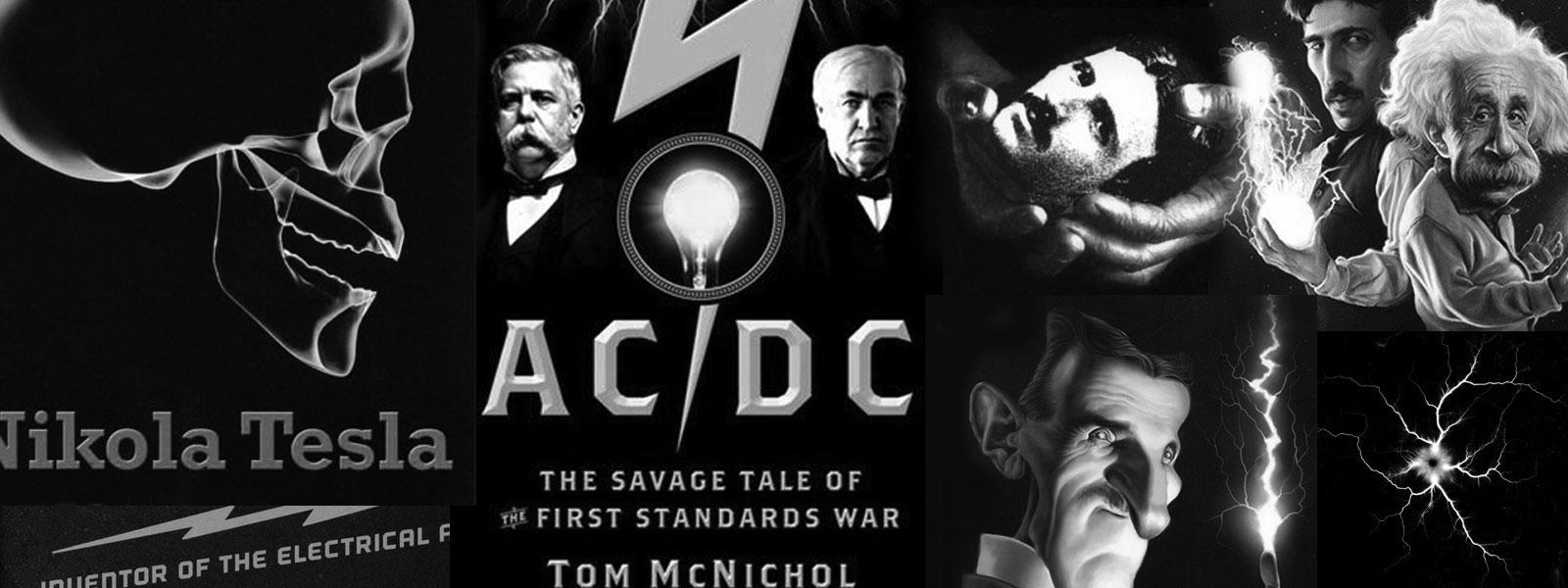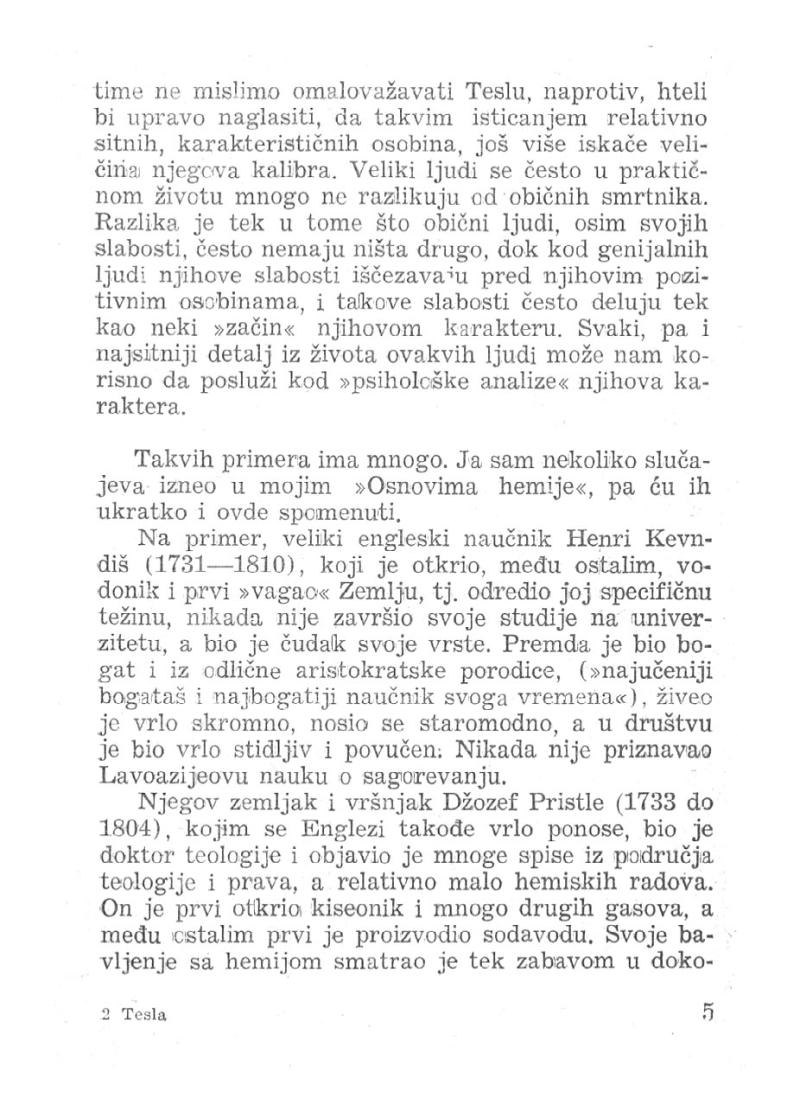
Nikola Tesla Books
we don't mean to disparage Tesla, on the contrary, we wanted to I would just like to emphasize that such an emphasis is relatively small, characteristic features, the size jumps out even more rank of his caliber. Great people often practice in this life they do not differ much from ordinary mortals. The only difference is that ordinary people, except their own weaknesses, often have nothing else, while geniuses people, their weaknesses disappear before their posi- tive features, and such weaknesses often only work as some »spice to their character. Each and every one the smallest detail from the lives of such people can tell us important to serve as a >>psychological analysis<< of their ca- treat
There are many such examples. I presented several cases in my "Basics of Chemistry", so I will briefly mention them here.
For example, the great English scientist Henry Cavendish (1731-1810), who discovered, among other things, hydrogen and the first "scale" Earth, i.e. assigned a specific weight to it, he never finished his studies at the university, and he was an oddball of his kind. Although he was rich and from an excellent aristocratic family ("the most learned rich man and the richest scientist of his time"), he lived very modestly, behaved in an old-fashioned way, and was very shy and withdrawn in society. He never recognized Lavoisier's science of combustion.
His countryman and peer Joseph Priestley (1733 to 1804), whom the English are also very proud of, was a doctor of theology and published many writings in the fields of theology and law, and relatively few chemical works. He was the first to discover oxygen and many other gases, and among other things, he was the first to produce soda water. He considered his involvement with chemistry only as fun while
